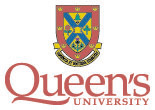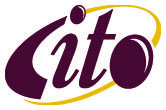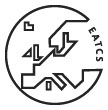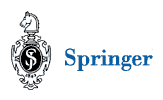
Ninth International Conference on Implementation and Application of Automata
Queen's University, Kingston, Ontario, Canada, July 22-24, 2004
Topics
Automata theory is the foundation of computer science. Its
applications have spread to almost all areas of computer science
and many other disciplines. In addition, there is a growing
number of software systems designed to manipulate automata,
regular expressions, grammars, and related structures; examples
include AGL, AMORE, Automate, FADELA, FinITE, FireLite,
FLAP,
FSM,
Grail,
INR, Intex,
MERLin,
MONA,
TESTAS,
Turing's World,
Vaucanson, WFSC and
Whale Calf.
The purpose of this conference is to bring together members of
the academic, research, and industrial community who have an
interest in the theory, implementation, and application of
automata and related structures. We solicit papers and demos in
these areas including, but not limited to, the following topics
as
they relate to automata:
- Bioinformatics
- Complexity of automata operations
- Compilers
- Computer-aided verification
- Concurrency
- Data structure design for automata
- Data and image compression
- Design and architecture of automata software
- Digital libraries
- DNA/molecular/membrane computing
- Document engineering
- Editors, environments
- Experimental studies and practical experiences
- Industrial applications
- Natural language processing
- Networking
- New algorithms for manipulating automata
- Object-oriented modeling
- Pattern-matching
- Quantum computing
- Speech and speaker recognition
- Structured and semi-structured documents
- Symbolic manipulation environments for automata
- Teaching
- Text processing
- Techniques for graphical display of automata
- VLSI
- Viruses, related phenomena
- World-wide web
Invited Speakers
Program Committee
- Bernard Boigelot, Universite de Liege, Belgium
- Janusz Brzozowski, University of Waterloo, Canada
- Cezar Campeanu, University of Prince Edward Island, Canada
- Jean-Marc Champarnaud, Universite de Rouen, France
- Jozef Gruska, Masaryk University, Czech Republic
- Tero Harju, University of Turku, Finland
- Markus Holzer, Technische Universitat Munchen, Germany
- Juraj Hromkovic, ETH Zuerich, Switzerland
- Oscar Ibarra, University of California, Santa Barbara, USA
- Masami Ito, Kyoto Sangyo University, Japan
- Tao Jiang, University of California, Riverside, USA
- Juhani Karhumaki, University of Turku, Finland
- Lauri Karttunen, Palo Alto Research Center, USA
- Nils Klarlund, Bell Labs, New Jersey, USA
- Werner Kuich, Technische Universitat Wien, Austria
- Carlos Martin-Vide, Rovira i Virgili University, Spain
- Denis Maurel, Universite de Tours, France
- Mehryar Mohri, AT&T Labs-Research, USA
- Frank Neven, Limburgs Universitair Centrum, Belgium
- Gheorghe Paun, Romanian Academy, Romania
- Jean-Eric Pin, CNRS & Universite Paris 7, France
- Bala Ravikumar, Sonoma State University, USA
- Grzegorz Rozenberg, Leiden University, The Netherlands
and University of Colorado, Boulder, USA
- Kai Salomaa (co-chair), Queen's University, Canada
- Klaus Sutner, Carnegie Mellon University, USA
- Wolfgang Thomas, RWTH Aachen, Germany
- Bruce Watson, Technische Universiteit Eindhoven, The Netherlands
and University of Pretoria, South Africa
- Derick Wood, Hong Kong University of Science and Technology, Hong Kong
- Hsu-Chun Yen, National Taiwan University, Taiwan
- Sheng Yu (co-chair), University of Western Ontario, Canada
Steering Committee
- Jean-Marc Champarnaud, Universite de Rouen, France
- Oscar Ibarra, University of California, Santa Barbara, USA
- Denis Maurel, Universite de Tours, France
- Derick Wood, Hong Kong University of Science and Technology, Hong Kong
- Sheng Yu, University of Western Ontario, Canada
Organizing Committee
Sponsors



Call for Papers
Best paper award: There will be a Best Paper Award for CIAA.
The recipient is selected on the basis of the referee reports.
The value of the award is USD$300 and it is sponsored
by the University of California at Santa Barbara.
Submission Instructions
Authors are invited to submit an electronic version
(in PostScript or pdf form) by April 4, 2004.
A paper should begin with the title,
each author's name, affiliation, and e-mail address,
and a one-paragraph summary of the results and ideas.
The paper should provide sufficient detail to
allow the Program Committee to evaluate its validity,
quality, and relevance to the conference.
The paper should be at most ten (10) pages long
using 11-point font with ample margins. If appropriate, proof
details omitted in the paper may be added in an
appendix.
Our online submission server is at
http://precisionconference.com/~ciaa04.
The submission server is closed.
We have received 62 submissions.
Submission Instructions for the Pre-Proceedings
Accepted authors: Please observe the following instructions for submitting
your papers for CIAA 2004 pre-proceedings:
- Pre-proceedings versions are due May 31, 2004;
- Please submit your paper through the submission website:
http://precisionconference.com/~ciaa04,
using the same login information used to submit your paper.
- Please prepare your contribution according to the Springer LNCS styles.
Please download instructions and necessary style files
here.
- We need both the processed document (in PS or PDF format) and its full LaTeX source,
including the figures (if any), which should be in the EPS format.
- The page limit is
- 12 pages for contributions accepted as regular papers.
- 2 pages for contributions accepted for poster presentation.
Conference Proceedings
The post-proceedings will appear in the Springer-Verlag
Lecture Notes in Computer Science series.


Extended versions of selected papers from the proceedings of the conference
series will be solicited for publication in special issues of
International Journal of Foundations of Computer Science (IJFCS)
and Theoretical Computer Science (TCS), alternating
each year with the CIAA 2004 special issue appearing in IJFCS.
Important dates
- Submission deadline: April 4, 2004
- Notification: May 10, 2004
- Pre-proceedings version due: May 31, 2004
- Conference: July 22-24, 2004.
- Revised version for the formal proceedings due: September 1, 2004.
CIAA 2004 will take place immediately before
DCFS 2004: Descriptional Complexity of Formal Systems.
6th Workshop, July 26-28, 2004, London, Ontario, Canada
Travel Information
Travel Information for CIAA can be found here
Previous Conferences
Contact Address
Kai Salomaa
School of Computing, Queen's University
Kingston, Ontario, Canada K7L 3N6
email: 
Last updated: 4 August 2004.




 CIAA 2005, Sophia Antipolis, France
CIAA 2005, Sophia Antipolis, France The CIAA 2004 post-proceedings in Springer LNCS 3317 is now available
on-line.
The CIAA 2004 post-proceedings in Springer LNCS 3317 is now available
on-line.

 Photographs from the conference.
Photographs from the conference.  "Report on CIAA 2004" by M. Domaratzki, A. Okhotin and K. Salomaa;
to appear in Bulletin of the EATCS.
"Report on CIAA 2004" by M. Domaratzki, A. Okhotin and K. Salomaa;
to appear in Bulletin of the EATCS. 




